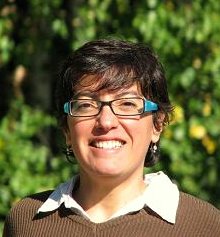Iron size classes in the Gulf of Alaska: Effects on productivity and community structure
Project Description
Iron (Fe) is an important micronutrient that limits primary productivity in many regions of the global ocean including the Gulf of Alaska (GOA). The availability of Fe also influences phytoplankton community composition. Knowledge of the transport and cycling of Fe in the GOA is limited despite its importance to the ecosystem. This project investigates regional and seasonal processes affecting the distribution of dissolved and suspended particulate Fe over the GOA shelf, and contributes towards an improved understanding of the processes that affect the primary productivity of this important region. The project is part of the lower trophic level component of the North Pacific Research Board Gulf of Alaska Project, with field seasons in 2011 and 2013 covering the shelf from Chatham Strait in the south east, to Kodiak Island in the west.
Project Funding
NPRB
Amount: $4,980.15
Start Date: 2011-06-00
End Date: 2015-12-00
Aguilar-Islas, A.M., Marie J.M. Séguret, Robert Rember, Kristen N. Buck, Peter Proctor, Calvin W. Mordy, and Nancy B. Kachel. (In press) "Temporal variability of reactive iron over the Gulf of Alaska shelf". Deep Sea Research II.
Research Team

Ana Aguilar-Islas
Principal Investigator
Associate Professor
Specialties:
- Marine Chemistry
- Trace metal marine biogeochemistry
- Analytical methods for determination of trace metals in seawater

Dean Stockwell
Co-Principal Investigator
Research Associate Professor
Specialties:
- phytoplankton taxonomy/ecology
- Phytoplankton taxonomy/ecology
- phytoplankton/nutrient interactions
- dynamics of coastal ocean and estuaries
- polar biology/ecology
- harmful algal blooms
Robert Rember
Marie Séguret (postdoc)
Megan Roberts ( PhD student)


